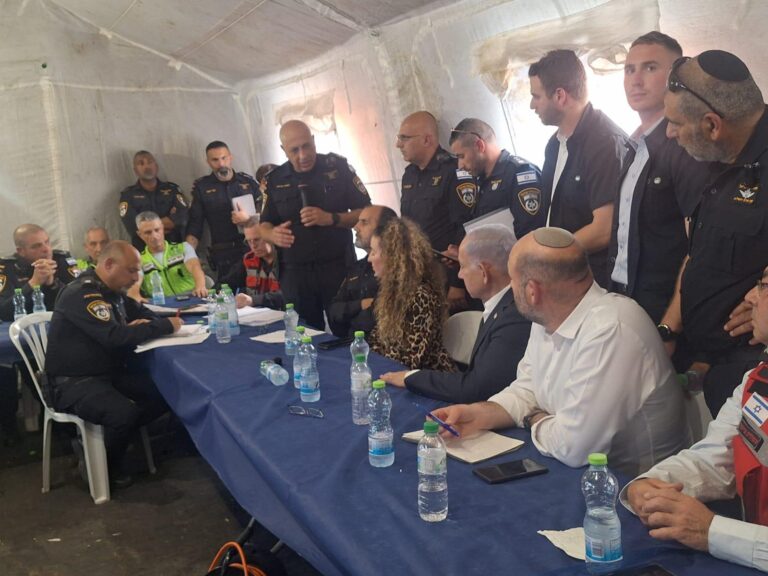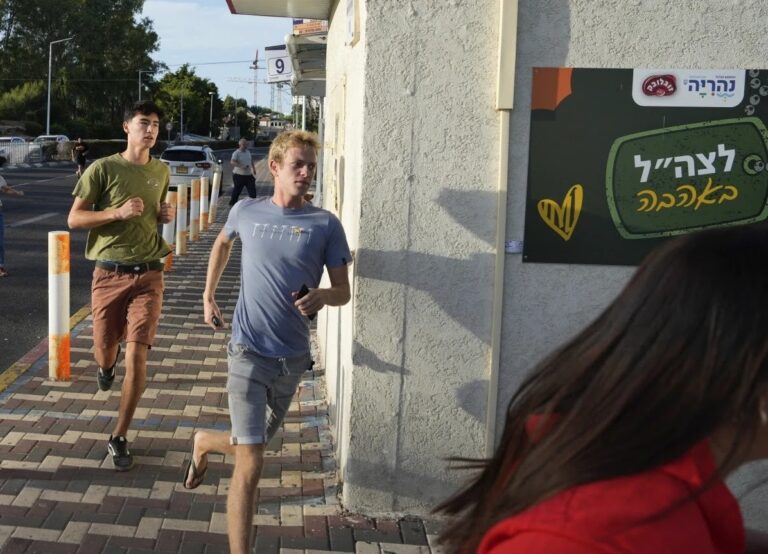Facing state and federal lawsuits alleging it used local ordinances to discriminate against Orthodox Jews from nearby New York state, a northern New Jersey town on Thursday night rescinded one of the measures that stoked a controversy that has roiled the town in recent months.
By a 6-1 vote, Mahwah’s council amended an earlier measure that would have restricted parks and playgrounds to local residents. The ban was prompted by some town residents’ complaints about overcrowding at the parks and their use by Orthodox Jewish families coming from towns across the nearby New York border.
Earlier this month, the council reversed part of an ordinance that effectively banned Eruvs, pieces of plastic piping attached to utility poles that serve as boundary markers delineating areas where Orthodox Jews can carry items and perform some activities during their Sabbath.
A lawsuit filed by the state in October sought to block the ordinances and to secure the return of more than $3.4 million in state grants the town has received from the state Department of Environmental Protection. It characterized the town’s actions as resembling “1950s-era white flight suburbanites” who sought to keep blacks out of their neighborhoods.
In an emailed statement late Thursday, state Attorney General Christopher Porrino didn’t comment on what effect the council’s action might have on a potential settlement of the suit. But he cautioned other towns.
“Our message to local officials in other towns who may be plotting to engage in similar attempts to illegally exclude, is the same: We will hold you accountable as well,” Porrino wrote.
Additionally, northjersey.com reported the nearby town of Montvale and the Bergen Rockland Eruv Association have been negotiating outside of court to come to a “mutually acceptable plan,” in the words of Mayor Mike Ghassali.
Yehudah Buchweitz, an attorney for the eruv association, said the group tried to engage with the borough before filing suit, to no avail. After the lawsuit was filed, town officials reached out to discuss a potential settlement, the attorney said.
“We’re in discussions with them, and we’re happy to resolve any of these cases, as long as we have our eruv,” Buchweitz said.
In October, Montvale became the third Bergen County town to face legal action from the eruv association, which has also filed suit against Mahwah and Upper Saddle River.
The federal lawsuit, filed by the association and five Orthodox Jewish residents of Rockland County, claims the borough is depriving the plaintiffs of their ability to fully and freely practice their religion by restricting the eruv’s construction.
Also Thursday, Mahwah Police announced they arrested a township man who allegedly damaged the eruv on Airmont Avenue in September.
Marcello Allegra, 49, was charged with criminal mischief but not a hate crime, Police Chief James Batelli said in a statement. He was released and scheduled to appear in court on Jan. 8.
Thursday’s meeting in Mahwah wasn’t as contentious as previous council meetings, but there was no shortage of passion on both sides. A young man who said he is Jewish said he never experienced anti-Semitism in Mahwah. But 23-year-old Mahwah resident Susan Steinberg, who also is Jewish but not Orthodox, told council members she “has never felt anti-Semitism in this town until this year” and said the tone in the town has turned ugly.
“This is a wonderful, sharing, lovely community, but it’s taken a turn that’s not good,” Steinberg said.
Council president Robert Hermansen, who has denied the measures were motivated by anti-Semitism, defended the town against what he called incorrect portrayals by the media.
“I know a tremendous number of people in this town who are Jewish and don’t feel the way you do,” he told Steinberg.
The town’s attorney said the legal fees related to the state’s lawsuit are roughly $100,000.
Town officials don’t have to look far (or far back) to find a similar dispute. Tenafly, a borough just north of the George Washington Bridge, which connects New Jersey and New York City, was forced to pay a Jewish group more than $300,000 in legal fees and allow the group to keep its eruv up after a six-year legal battle.
(YWN / AP)











